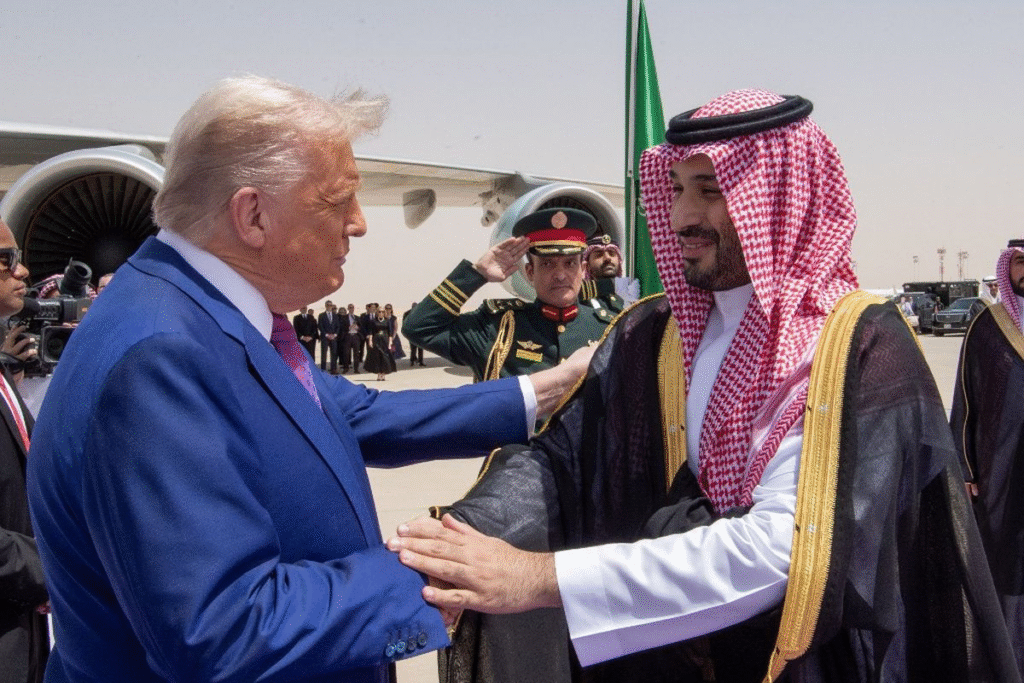As Iran faces a coordinated wave of military strikes from both Israel and the United States, its neighboring Arab nations are maintaining a calculated silence if not quiet approval. Despite public expressions of concern over a growing regional conflict, official condemnation from Middle Eastern governments has been muted, with some opting for vague statements or avoiding any direct criticism of the US.
On Monday, Iran retaliated by firing missiles at the American Al Udeid Air Base in Qatar. However, the move was widely viewed as symbolic. Qatar, which intercepted the missiles, called the action a breach of its sovereignty and condemned it, but notably did not express support for Iran.
Analysts suggest that the subdued reactions from Arab governments highlight a deeper sentiment: many view Iran as a destabilizing force and are privately pleased to see it weakened.
Strategic Calculations and the Shadow of Iran’s Influence
For decades, Iran has supported a network of proxy groups across the region Hezbollah in Lebanon, the Houthis in Yemen, Shia militias in Iraq, and the Assad regime in Syria. This reach has alarmed Sunni-led governments in the Arab world, who see Iran’s ambitions and support for revolutionary movements as existential threats.
“Their public caution masks a private satisfaction,” said Firas Maksad of the Eurasia Group. “These governments are eager to avoid being targets of Iranian retaliation, but they don’t mind seeing Tehran diminished.”
While countries like Saudi Arabia, the UAE, and Turkey have issued cautious statements about the potential for escalation, they have largely refrained from criticizing the US or Israel directly. The UAE and Qatar even avoided naming the US in their official statements following the strikes on Iranian nuclear sites.
A Region Redefined by Common Interests
The growing alignment between Israel and Arab states, formalized through Trump’s Abraham Accords, has been driven largely by mutual concerns over Iran’s expanding regional power. What once was a relationship defined by historic hostility has shifted into a strategic alliance designed to counter Iranian influence.
This change was already visible in Lebanon, where Israel’s dismantling of Hezbollah’s infrastructure in recent conflicts was met with quiet approval from many Lebanese outside of Hezbollah’s Shia support base. The group, once viewed as a formidable resistance movement, now finds itself isolated, weakened, and cautious about entering another conflict on Iran’s behalf.
Even Hezbollah’s most recent statement, issued in solidarity with Tehran, hinted at restraint. The group lauded Iran’s resilience but refrained from announcing any military escalation.
Syria’s Shift and Regional Ramifications
Syria, once a key Iranian ally, has undergone a significant transformation. With the fall of Bashar al-Assad’s Iran-backed regime and the rise of Ahmad al-Sharaa, Damascus has begun overtures toward both Washington and Tel Aviv, signaling a desire to move away from Tehran’s sphere of influence.
This shift underscores the broader recalibration across the region, where long-standing alliances are being reassessed in light of current geopolitical realities.
Cautious Allies and Calculated Risks
While Arab states may be quietly welcoming Iran’s military setbacks, they are also wary of becoming collateral damage. The memory of the 2019 Houthi drone attack on Saudi Arabia’s Aramco oil facilities remains fresh. Though the Houthis claimed responsibility, the US and Saudi Arabia held Iran accountable.
“If Iran retaliates by targeting US assets in Gulf states, it could drag those nations further into the conflict,” said Yoel Guzansky, a former advisor to Israel’s National Security Council.
There’s also the lingering fear among Gulf monarchies that a regime collapse in Tehran could trigger a power vacuum and civil unrest, potentially spilling into their own borders and stirring their restive Shia populations.
“They don’t want the current regime to survive, but neither do they want chaos,” said Guzansky. “A weakened but intact Iran is preferable to a collapsed one.”
A Balancing Act Amid Escalation
As tensions continue to rise, Arab governments are walking a tightrope publicly advocating for de-escalation while silently welcoming the blows dealt to their historic rival. Their focus remains on stability, self-preservation, and preserving their strategic partnerships with Washington.
In the days ahead, their stance could shift further depending on whether the US chooses to escalate its campaign against Tehran or pursue regime change. Until then, their silence speaks volumes.

